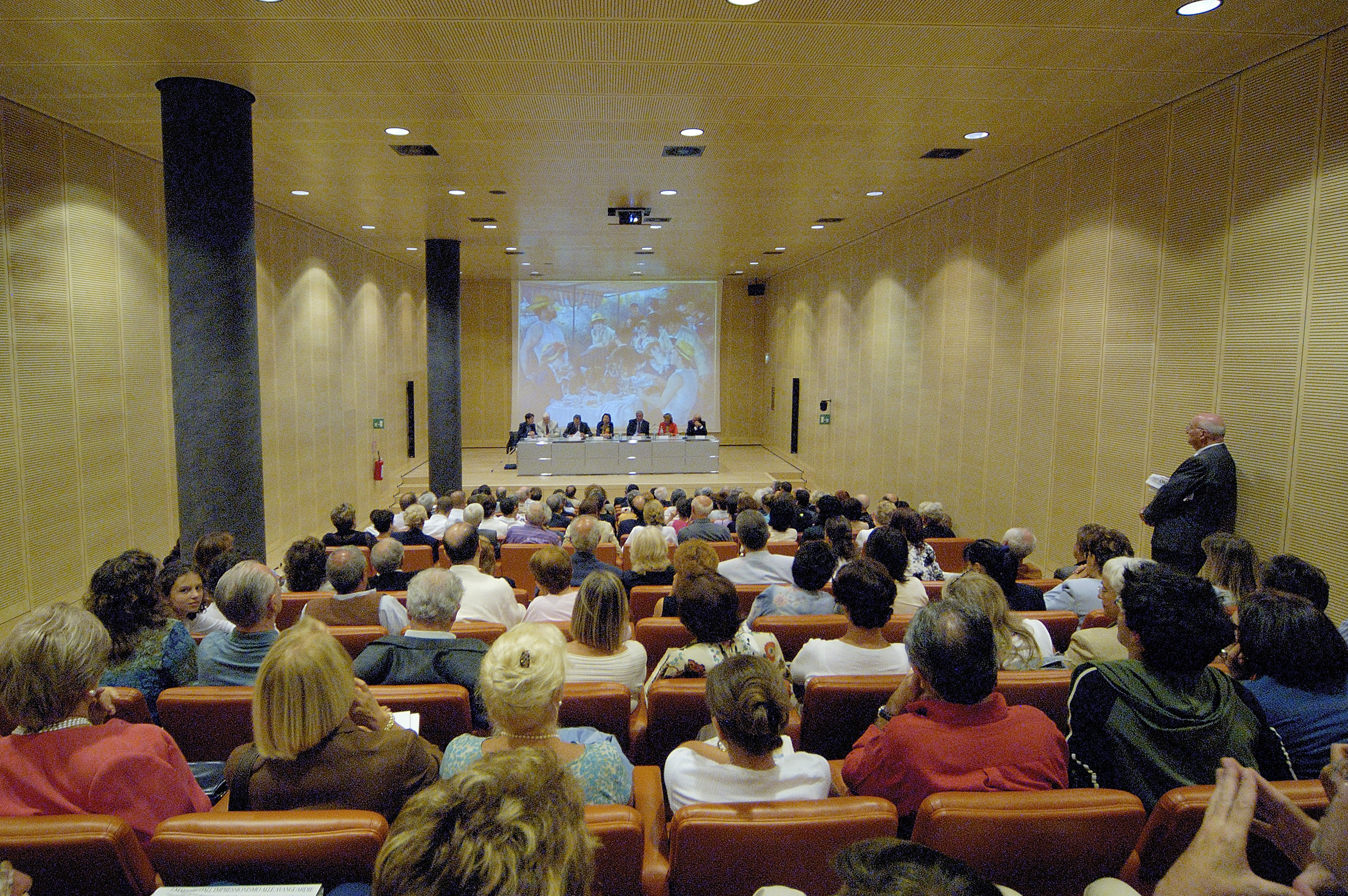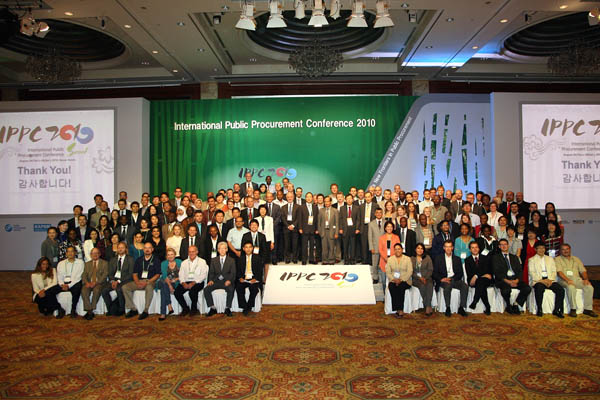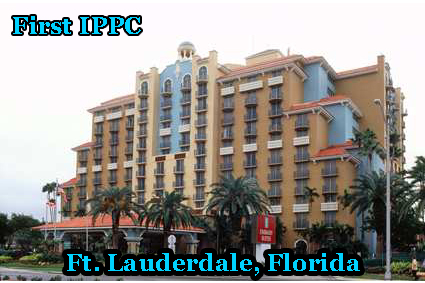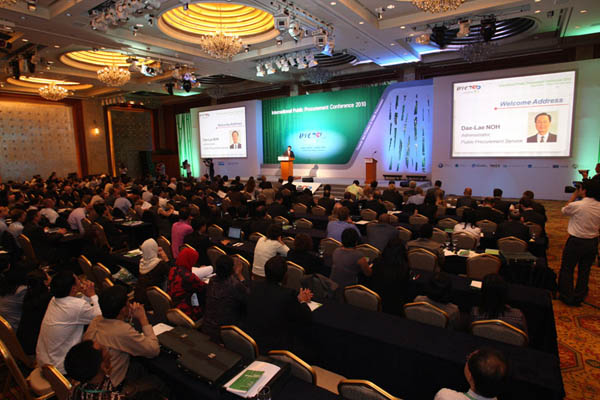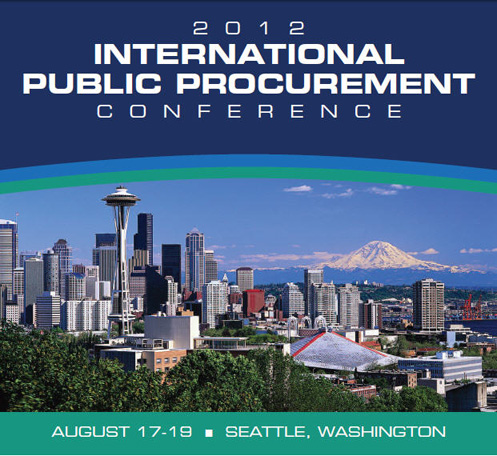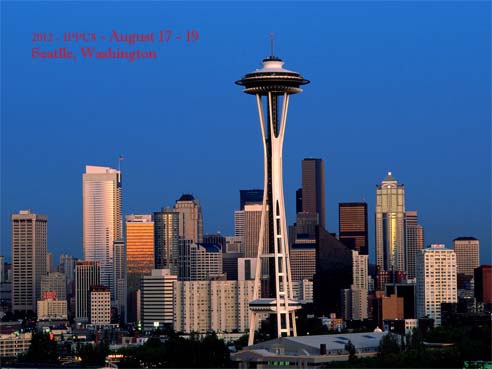FOURTH INTERNATIONAL PUBLIC PROCUREMENT CONFERENCE, August 26 - 28, 2010, Seoul, South Korea
Preface: About the 4th International Public Procurement Conference
Part I: Comparative Procurement
1-1. Developments and Reforms in Public Procurement System in Kosovo: The First Decade
Ilaz Duli
1-2. Value for Money: The Limping Pillar in Public Procurement: Experience from Tanzania
Reginald G. Mamiro
1-3. Tackling Supply Chain Bottlenecks of Essential Drugs: A Case of Uganda Local Government Health Unitsimages
Pross Nagitta Oluka, Francis Ssennoga, and Stephen Kambaza
1-4. Public Procurement in Brazil Federal Government: A Perspective from the Agents Responsible for its Regulation and Operation
Alexandre Ribeiro Motta
1-5. Public Procurement in the Caribbean: Confronting the Challenges and Opportunities
Sandra Schrouder
1-6. Critical Signs of Public Procurement in a Transitional Country
Tunde Tatrai
1-7. Public Procurement Law in Bangladesh: from Bureaucratisation to Accountability
Ridwanul Hoque
1-8. The First Information and Support Center of the Economic Operators for Participating in Public Procurement Procedures in Romania
Ioan Cioba
1-9. The Public Procurement System in Russia: Road toward a New Quality
Andrei Yakovlev, Lev Yakobson, and Maria Yudkevich
1-10. Determinants of Public Procurement Corruption in Uganda: A Conceptual Framework
Benon C. Basheka, and Milton Tumutegyereize
1-11. Public Procurement and Corruption in Bangladesh
Shakeel Ahmed Ibne Mahmood
1-12. Overview of Public Procurement in Ministry of Interior of Islamic Republic of Afghanistan: Personal Account of Institutional Transition on a Conflict Country
Alex Rok
1-13. The Public Procurement System in Bulgaria
Roumen Trifonov and Marieta Popova
1-14. Reforming Public Procurement in The Philippines: Progress and Constraints
David Seth Jones
1-15. International Joint Public Procurement: A New Initiative Hosted by The Luxembourg Central Bank
Stephen Kaiser
1-16. Bid Protests as a Measure of Integrity in Public Procurement: A Descriptive Study of Municipalities in Uganda
Peter Obanda Wanyama
1-18. Arbitration as a Dispute-Solving Mechanism in Public Procurement: A Comparative View between Peruvian and Spanish Systems
Alexandra Molina Dimitrijevich
Part 2. Construction Procurement
2-1. Structuring Ideal Project Delivery System
Seongkyun Cho, Glenn Ballard, Rahman Azari, and Yong Woo Kim
2-2. Alternative Contracting Strategies for Rebuilding Urban Infrastructure: Are They Really Effective?
Kunhee Choi, Charles W. Ibbs, and Jae-Ho Pyeon
2-3. The Keynotes of the Direct Contracting System on the Public Housing Project
Jinho Shin, Hyunsoo Lee, and Moonseo Park
2-4. Market Competition through Past Performance Criteria: An Amsterdam Case
W.B. Ten Haaf
2-5. Whole Life Cost Bid Evaluation for Design-Build in Korea
Sung Ho Park
2-6. Choice of Construction Procurement Mode of Cote D’ivoire
Klonanourou Alphonse Coulibaly
2-7. Case Study on the Economic Crisis Management through Public Construction Works, Employed by the Korean Government
Chull Lee
Part 3. Defense Procurement
3-1. Perception as a Characteristic of Decision Making in a Defense Contractor’s Proposal Process
David Nixon
3-2. Korean Defense Procurement from Foreign Countries and International Cooperation Plan
Seok Kim
3-3. Defence Supply Chain Management: Conceptual Framework and First Empirical Findings
Michael Essig, Sandra Tandler and Michael Scheckenhofer
3-4. Emerging Professionalism in a Defence Acquisition Workforce
David Moore and Kevin Burgess
3-5. Professionalization of the U.S. Defense Acquisition Workforce: Progress, Problems, and Future Directions
Rene G. Rendon
3-6. In Search of Efficient and Effective Defence Procurement: An Australian Case Study
Stefan Markowski and Robert Wylie
Part 4. Economics of Procurement
4-1. Framework Agreements and Repeated Purchases: The Basic Economics and a Case Study on the Acquisition of IT Services
Gian Luigi Albano, Antonio Ballarin and Marco Sparro
4-2. Factors Contributing to Different Forms of Maverick Buying: An Empirical Test in the Government of Finland
Katri Karjalainen and Erik M. Van Raaij
4-3. (Un)Bundling Infrastructure Procurement: Evidence from Water Supply and Sewage Projects
Antonio Estache and Atsushi Iimi
4-4. Combinatorial Auctions in Public Procurement: Experiences from Sweden
Anders Lunander and Sofia Lundberg
4-5. Contract Clause Dynamic Bargaining and Procurement Design
Alessandro Avenali, Giorgio Matteucci and Fabio Nonino
4-6. Free-Riding in Procurement Design
Klenio Barbosa
4-7. A Tentative Model of a Demand System for Public Procurement of Innovation
Max Rolfstam
4-8. A Model to Predict Bid Distribution in Public Tenders
Nicola Costantino, Marco Falagario, Roberto Pietroforte, and Fabio Sciancalepore
4-9. Job Creation On The Public Market
Juan Francisco Martinez and David Escobar
4-10. Accountability and Transparency in Public Procurement: American Recovery and Reinvestment Act of 2009 Goals Versus Local Government Standards
Steven G Chapman II and Keith Glatz
Part 5. e-Procurement
5-1. Public E-Procurement: Define, Measure and Optimize Organizational Benefits
Francesco Gardenal
5-2. Electronic Public Procurement of Construction and Public Works: Towards a New Reality
Antonio Grilo and Ricardo Jardimgoncalves
5-3. Policy Choices in the Implementation of Electronic Procurement: The Approach of The Uncitral Model Law on Procurement to Electronic Communications
Caroline Nicholas
5-4. Implementation of e-Procurement System in Brazil
Carlos Henrique De Azevedo Moreira
5-5. Policy Measures for Low-Carbon Green Growth
Ja-Hyun Koo and Joong-Sik Lim
5-6. E-Tendering In Austria
Paul Humann
5-7. E-Procurement Entry Strategy: The Indonesia Case
Invanos Tertiana
5-8. E-Procurement in Brazil's State Governments
Juarez Paulo Tridapalli, Waltair V. Machado and Elton Fernandes
Part 6. Government Asset Management
6-1. A Study on the Performance Improvement in Personal Property Management through the Application of RFID Technology
Tae-Ryeon Kim
6-2. A Case Study on the Procurement Process Development in The Public Enterprise Through ERP Adoption
Jeongwook Khang and Yungmok Yu
6-3. State-Owned Asset Management Reform in China
Yaotai Lu and Hongli Wang
Part 7. Green Procurement
7-1. Assessment of Green Procurement as a Policy Tool: Cost-Efficiency and Competition Considerations
Runar Brännlund, Sofia Lundberg and Per-Olov Marklund
7-2. Benefits and Obstacles of Environmental, Social and Sustainable Procurement
Abdullah Korkmaz
7-3. The Urgent Need to Develop Sustainable Policy Tools For Medical Devices Public Procurement in Benin
Pamphile Thierry Houngbo, Pamela Wright, Joske Bunders, Gert Jan Van Der Wilt, Daton Medenou, Laurent Dakpanon and Joost Ruitenberg
7-4. Bid Protests as a Measure of Integrity in Public Procurement in Uganda
Peter Obanda Wanyama
7-5. Sustainable Public Procurement: A New Policy Paradigm in France?
Ronan Le Velly
7-6. China Green Public Procurement Program: Issues and Challenges in its Implementation
Yuhua Qiao and Conghu Wang
7-7. Towards Sustainable Public Procurement In China: Policy And Regulatory Framework, Current Developments And The Case For A Consolidated Green Public Procurement Code
Cao Fuguo, Yan Yuying and Zhou Fen
7-8. Portland Oregon’s Waste Transport Contract: A Case Study in Utilizing Progressive Procurement Methodology to Achieve Sustainability Goals
Darin Matthews
7-9. Sustainability as an Innovation in Public Procurement: The Case of Sustainable Construction in Greece
Odysseus Manoliadis and Ioannis Tsolas
7-10. Sustainable Public Procurement
A.B. Adjei
7-11. Public Procurement for Sustainable Development
Veluppillai Mohan
Part 8. Health/Professional Service Procurement
8-1. Strategic Set Up and Tactical Management of Long-Term IT Contracts
R.H.W. Jagt
8-2. In-House Provision, Procurement and Quality: Evidence from Elderly Care Services
Mats A. Bergman, Sofia Lundberg and Giancarlo Spagnolo
8-3. Centralization and Networking in Italian NHS: European Benchmarking and Performance Evaluation
Marco Meneguzzo, Marco Frey, Emanuela Delbufalo, Gloria Fiorani and Carmen Calabrese
8-4. Public Procurement in Cultural Heritage Conservation: An Exploratory Study for Italy
Calogero Guccio and Ilde Rizzo
Part 9. International Trade and Procurement
9-1. The Competitive Dialogue in Portugal and Spain
Pedro Telles
9-2. International Joint Public Procurement: The Case of the European Union Institutions, Agencies and Other Bodies
Francisco García Morán
9-3. The Implementation of Free Trade Agreements: Caricom and CAFTA Procurement Practices in Belize and Guatemala
Edward J Pabor
9-4. What Impact Has the Australia-United States Free Trade Agreement Had on Public Procurement
Richard Doyle
9-5. Is China Ready to Join the Government Procurement Agreement of the World Trade Organization?
Stéphane Coudé, Prosper Bernard Jr. and Lisa Lu
9-6. A Study on the Government Procurement Provisions of Korean Free Trade Agreements: Centering on the Case of Korea-US FTA
Dae-Sik Kim
9-7. Implementing National Measures on Public Procurement under the EC Directives: The Portuguese Experience
João Amaral E. Almeida and Paula Bordalo Faustino
Part 10. Legal Issues in Public Procurement
10-1. Comparative Defense Procurement in Law and Development Context
Dae-In Kim
10-2. Public Procurement: Catch 22
Wouter Stolwijk
10-3. Compliance and Service Delivery: Case Study of Local Government Procurement Units in Uganda
Tadeo Mbabazi, Karuhanga Bernadette and Mukokoma Maurice
10-4. Implementing Reasonable Rule for Imposing Criminal Penalty on Joint Bidders in Public Bid: Critical Comment on South Korea’s Case
Sanghyun Lee
10-6. Organisation vs. Market in Purchasing Arrangements among Public Entities: The European Perspective
Roberto Cavallo Perin and Dario Casalini
10-7. Legislative and Administrative Directives Governing Procurement Procedures: A Case Study for South Africa
Kishore Raga and John Derek Taylor
Part 11. Practical Issues in Public Procurement Decisions and Procedures
11-1. The Road To Hell Is Paved With Good Intentions
John J.D. Read
11-2. Fight Those Last Minute Decisions!
John Konijn
11-3. Auction Versus Negotiation In Public Procurement: Looking For Empirical Evidence
Eshien Chong, Carine Staropoli and Anne Yvrande-Billon
11-4. Transferability of Research On Contract Types And Problems
Bill Davison and Richard J. Sebastian
11-5. Specification, Evaluation and Verification Realising Public Procurement for Innovation
Sven-Eric Hargeskog
Part 12. Procurement Performance
12-1. Developing a Public Procurement Performance Measurement System in Uganda: A Baseline Survey
Cornelia K. Sabiiti, Edwin Muhumuza and Benon C. Basheka
12-2. Achieving Continuous Improvement through Self-Assessment
Jason Waterman and Louise Knight
12-3. Conceptual Framework for Performance Measurement in Public Procurement
Michael Essig, Markus Amann and Raphael Boerner
Part 13. Procurement Preferences
13-1. The Role of Small Business in Economic Development of the United States
Major L. Clark, III and Radwan N. Saade
13-2. Integrating Socio-Economic Policies into the Public Procurement Framework: An Analysis of the Public Procurement Option Model
Francis Ssennoga and Jan Telgen
13-3. The Brazilian Experience of Using Public Procurement Policies to Promote the Development of Micro and Small Enterprises
Pezzutti Ribeiro Teixeira Daniel
13-4. A Study of the Role of Public Procurement: Can Public Procurement Make Society Better?
Jeong-Wook Choi
13-5. SMEs and Black Economic Empowerment in the Construction Industry: The Case of Gauteng Provincial Housing Department
Stephen O. Migiro
13-6. Preferential Procurement: A Case Study of South Africa
John Derek Taylor and Kishore Raga
Part 14. Procurement Profession
14-1. Public Procurement Skills Requirement Framework for Local Government Systems in Uganda: Perceptions from Pofessionals
Benon C. Basheka
14-2. Procurement Processes and Performance: Efficiency and Effectiveness of the Procurement Function
Patrick Kakwezi and Sonny Nyeko
14-3. Identifying Professional Certification Programs: A Job Analysis Study
Ann Peshoff
14-4. Professionalising Communal Procurement: The Experience in the Dutch Public Sector
Marcel Stuijts, Ditmar Waterman and Jos Schreijen
14-5. Trends in Public Procurement Certification in North America
Norma J. Hall
14-6. Crossing Boundaries in Public Procurement
Kees Tazelaar
Part 15. Public Private Partnership
15-1. Private Provision of Public Services in Developing Countries? The Case of Uganda’s Local Governments
Charles Ndandiko
15-2. Public Private Partnership (PPP) on the Move or Going South? Empirical Indications for Successful PPP Decisions from German Municipalities
H.C. Ulli and Vanessa Kehl
15-3. Partnership Concepts in Danish Public Procurement: Different Concepts for Different Customers
Morten Munkgaard Møller, Kent Petersen, Jens Hedegaard, Allan Vendelbo and Søren Jakobsen
15-4. Machiavellian PPP? Evidence from Italian Local Government’s Projects for Public Services
Federico Antellini Russo and Roberto Zampino
15-5. Long-Term Infrastructure Partnerships: Contracting Risks and Recommendations
Pamela Bloomfield and F. Daniel Ahern, Jr.
Part 16. Public Procurement as an Economic Policy Tool
16-1. Procurement as a Tool for Economic Stimulus: The United States’s Experence, 2008-2010
Joshua I. Schwartz
16-2. International Competitiveness: Government Policy and the Development of Competitive Industries
Barry Anthony Ishmael
Part 17. Supply Chain Management
17-1. Supply Management Policy in Korea: Comparison / Review between Public and Private Organizations
Sung-Kook Ryou
17-2. Going for Gold: The Practical Realities of Opening up the 2012 Olympic Supply Chain to SME Competition
Scott A. Smith and Chris Bell
17-3. Metaphor, Mental Models and Paradigms in Supply Chain Management: The Implications of Applying a Complex Systems View to Understandings of the Characteristics of Supply Chains
Bill Aukett
17-4. Risks Management in Public Procurement for Innovation: The Case of Nordic-Baltic Sea Cities
Tarmo Kalvet and Veiko Lember
Part 18. Transparency & Accountability in Procurement
18-1. Development Model for Public Procurement – In a Danish Context
Morten Munkgaard Møller, Jens Hedegaard, Kent Petersen, Allan Vendelbo and Søren Jakobsen
18-2. Procurement Reform at the United Nations: Launching a Pilot Programme to Promote Fairness, Transparency and Efficiency
Jacqueline Schroeder
18-3. Imperfect Formal Contract Enforcement: The Case of Russian Public Procurement
Svetlana Pivovarova
18-4. Lesson Learned from Irregularities Committed in Public Procurement
Syed Zafar Shahid Tabish and K.N. Jha
18-5. On the Determinants of Collusion in Public Procurement: The Case of Chile
Juan Francisco Martinez, S. David Escobar and Claudio Loyola
18-6. The Procurement Ombudsman: An Effective National Procurement Mechanism?
Martine J. Gruppen
18-7. Reform in Defense Sector Procurement and the Role of Civil Society: An Experience of Korean Civil Society for Defense Sector Procurement Monitoring
Sung-Goo Kang
18-8. Pr06-5-3 Whistleblowers Legislation Model for Nigeria
Ibrahim Sule
18-9. The Effects of Full Transparency in Supplier Selection on Subjectivity and Bid Quality
Jan Telgen and Fredo Schotanus
18-10. Concentrative Organization as a Model for Anticorruption: The Case of Chinese Public Procurement
Conghu Wang and Xiaoming Li
18-11. Enhancing Transparency within Public Sector Procurement: The South African Experience
Peter Volmink
18-12. Accountability and Transparency: Preventing Corruption in Public Procurement; Oral Debriefing Concept
Muhimbise Andrew
18-13. Professional Buying Organisations, Sustainability and Competition in Public Procurement
Gabriella M. Racca
Part 19. Miscellaneous Issues
19-1. The Use of Information Technology in Health Organizations Procurement
Alessandro Ancarani, Carmela Di Mauro, Maria Daniela Giammanco, and Francesco Mascali
19-2. Critical Success Factors in Government Contract Management
Rene G. Rendon
19-3. The Effects of Korean Government's Defense Industry Fostering Policy on the Performance of
Defense Industry Enterprises
Chicue Rim and Hoonyoung Lee













